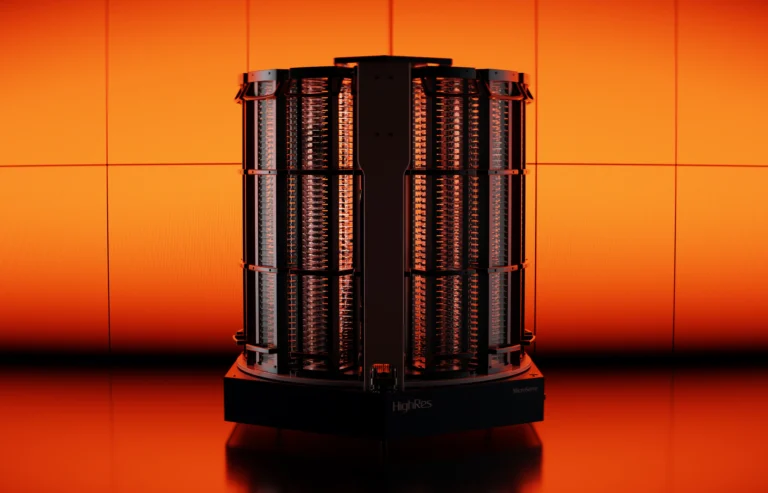
Kioxia Unveils Advanced Plug-In to Extend SSD Lifespan and Boost Performance in RAID Configurations
Kioxia Corporation, a global leader in memory solutions, has announced a significant advancement in flash storage technology with the release of an enhanced RocksDB plug-in. This innovation is designed to improve both the lifespan and performance of solid-state drives (SSDs) in multi-drive RAID environments. Building on its previous success with Flexible Data Placement (FDP)-enabled SSDs running RocksDB, Kioxia will demonstrate this breakthrough at the upcoming Open Compute Project (OCP) Global Summit, showcasing how it addresses critical challenges in modern data storage.
The new plug-in delivers remarkable improvements in write amplification factor (WAF) and throughput for RAID configurations, two key metrics that directly impact SSD longevity and performance. In a 4-drive RAID 5 setup, the plug-in achieved a 46% reduction in WAF while delivering throughput 8.22 times higher than MDRAID1, a standard Linux™ RAID implementation. Similarly, in a 2-drive mirrored configuration, WAF was reduced to approximately one-third of its original value, with throughput increasing by 1.45 times compared to MDRAID1. These gains are made possible by consolidating data writes into sequential operations, which minimizes data fragmentation and reduces the need for garbage collection—a process that can degrade SSD performance over time.
Addressing Key Challenges in RAID Environments
RAID (Redundant Array of Independent Disks) configurations are widely used in data centers and enterprise environments to enhance data redundancy, reliability, and performance. However, traditional RAID setups often suffer from high write amplification, where the actual amount of data written to the SSD exceeds the logical data intended for storage. This phenomenon accelerates wear on NAND flash memory cells, shortening the lifespan of SSDs and impacting overall system efficiency.
Kioxia’s new plug-in tackles this issue head-on by optimizing how data is written to SSDs in RAID configurations. By ensuring that data writes are consolidated and performed sequentially, the plug-in prevents fragmentation, which is a common cause of inefficiency in RAID systems. This approach not only reduces wear on SSDs but also enhances their performance, making them better suited for demanding applications such as generative AI, cloud computing, and large-scale database management.
Enhancing RocksDB Performance for Modern Applications
RocksDB, an open-source embedded database optimized for fast storage, is a popular choice for high-performance applications that require efficient search capabilities and robust management of historical data. Its widespread adoption in industries like artificial intelligence, big data analytics, and cloud services underscores the importance of optimizing its performance in RAID environments. Kioxia’s plug-in is specifically tailored to address the unique demands of RocksDB workloads, ensuring that SSDs deliver sustained performance even under heavy usage.
At the 2025 OCP Global Summit, Kioxia will demonstrate the plug-in’s capabilities using the KIOXIA XD8 Series SSD in a live setup. The demonstration will highlight the performance gains and reduced WAF achieved in a two-drive RAID 1 configuration with the RocksDB plug-in, compared to standard Linux™ RAID mirroring. Attendees visiting Kioxia’s booth (A51) will have the opportunity to witness firsthand how this innovation can transform RAID-based storage systems, offering a glimpse into the future of efficient and reliable flash storage.
Commitment to Open-Source Innovation
In line with its commitment to advancing SSD and flash memory technologies, Kioxia plans to release the plug-in as an open-source contribution. This move reflects the company’s dedication to fostering industry-wide collaboration and innovation. By making the plug-in freely available, Kioxia aims to empower developers, system integrators, and data center operators to implement these advancements in their own environments, driving broader adoption of efficient storage solutions.
Open-source contributions like this play a crucial role in addressing the evolving needs of advanced computing infrastructures. As data-intensive applications continue to grow in complexity and scale, the demand for high-performance, durable storage solutions becomes increasingly critical. Kioxia’s decision to share its innovations ensures that the benefits of reduced write amplification and improved throughput are accessible to a wide range of users, supporting the development of more sustainable and efficient data ecosystems.
About Kioxia
Kioxia is a world leader in memory solutions, dedicated to the development, production and sale of flash memory and solid-state drives (SSDs). In April 2017, its predecessor Toshiba Memory was spun off from Toshiba Corporation, the company that invented NAND flash memory in 1987. Kioxia is committed to uplifting the world with “memory” by offering products, services and systems that create choice for customers and memory-based value for society. Kioxia’s innovative 3D flash memory technology, BiCS FLASH™, is shaping the future of storage in high-density applications, including advanced smartphones, PCs, automotive systems, data centers and generative AI systems.





